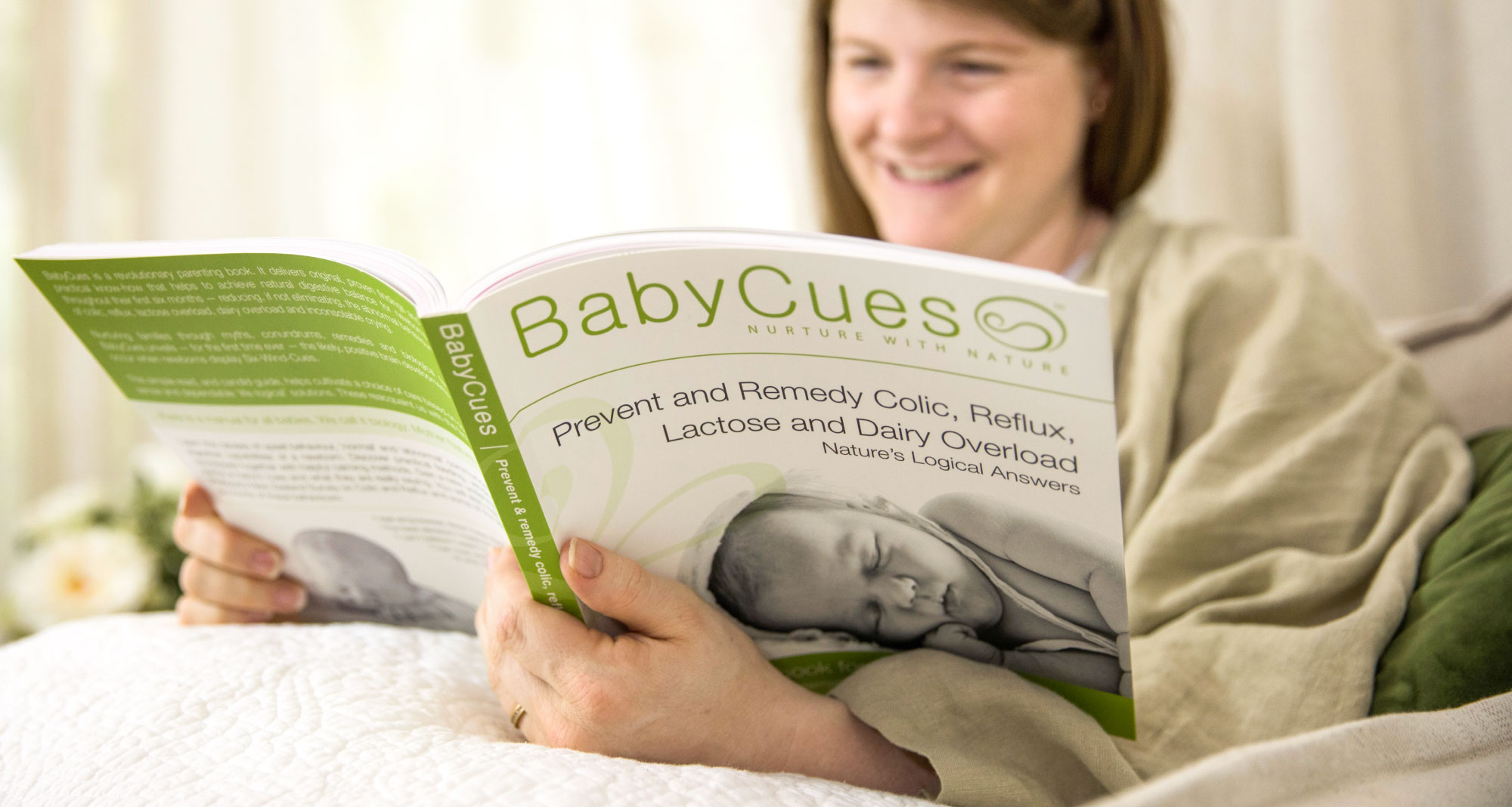How much should my baby weigh?
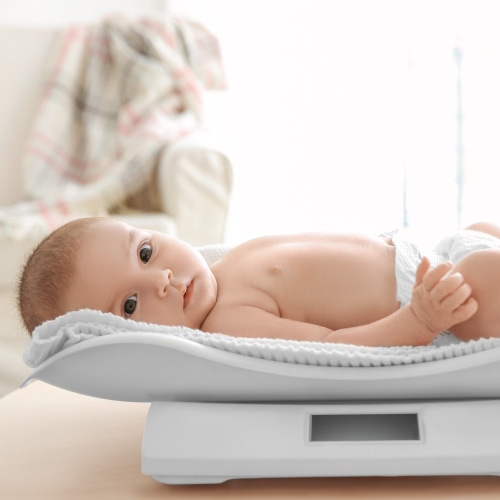
As many parents know, weight gain is an important part of newborn health. All of us love to see our babies and infants putting on beautiful steady weight gains as our children move through their developmental ages. So what is considered a healthy weight gain from birth to one year of life? And can our babies put on too much weight?
Average weight gains at each age
During the first few days of life newborns can lose 10% of their birth weight, with most generally being back to this by around 10-14 days of age, once the milk supply has moved from colostrum to fattier milk and supply is established. This 10% loss of weight has been regarded as 'normal' now for a long time but some health professionals are now advocating that supplement feeding in the early days could help reduce this rapid drop in weight for newborns, believing this to be a healthier beginning to life. Formula, or milk from a milk bank might be used for this if that’s what the parents have chosen. In days gone by, and probably in non-westernised countries still, wet nurses might have commonly filled this void during the early days. However, if you decide not to supplement feed in the early days, until your breastmilk changes to fattier milk, the 10% weight loss is still considered normal and is always monitored.
When bubs is born you will more than likely be given a percentile chart from your health provider where they will track your baby’s weight. The percentiles on the chart are an average weight taken from newborns and infants at certain ages, comparing your child with them. For example, if you had 100 babies and your baby was on the 30th percentile line it means your baby weighs more than 30 babies and less than 70.
A baby’s percentile is guided by DNA just as much as food intake. But generally, if a baby sits comfortably on a lower percentile at birth and gradually tracks along that percentile for growth, then they are doing well. It would be concerning however, if quite quickly that child moved to above the 50th percentile rather dramatically – this generally shows an increase of food that is not actually healthy for bubs - more about this below. Subsequently, the same applies if your baby’s percentile drops dramatically.
Average percentile weights from World Health Organisation (WHO)
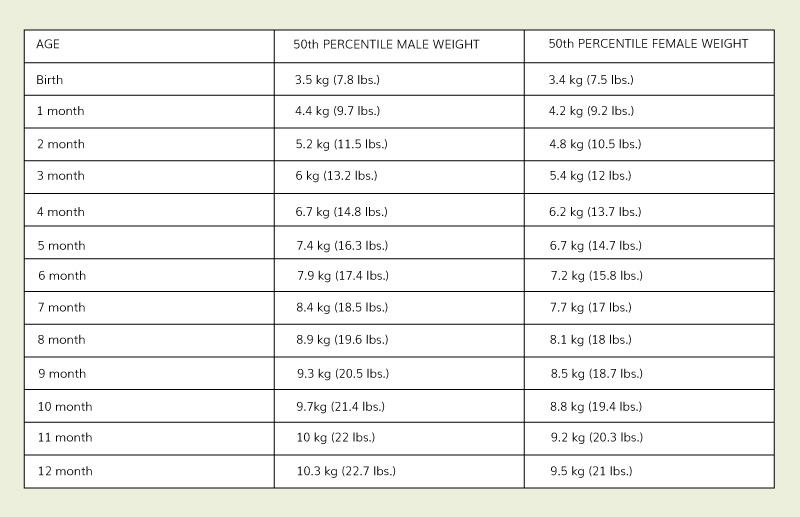
How much weight gain is considered healthy?
An ideal weight gain that paediatricians like to see for baby’s aged 0-6 months is 20-25 grams a day (0.7 to 0.8 ozs). As infants (6-12 months) healthy weight gain adjusts to 50-80 grams a week.
If your baby is putting on 30 grams or more a day, while frequently sleeping for short sleep cycles, arching backwards, crying/screaming a lot, not wanting to be put down, pedalling their legs, not feeding well, or looking ravenous, then it is highly likely that their digestive system is struggling to cope with the amount of food they are being fed. This cycle of overfeeding is a contributing cause of colic and reflux and can certainly be adjusted to help the symptoms mentioned.
Another aspect to consider when looking at weight is to consider overall growth. For example, your baby or infant may have put on weight that is slightly lower than the recommendations but grown in length, or their head circumference has expanded. All of which would have taken energy from their food source and should be holistically considered as positive gains, balancing out the lower weight gain.
Can my baby gain weight to fast?
Quite simply yes, and I see this in my clinic a lot, because as I mentioned earlier overfeeding is one of the catalysts to ‘colic’ and ‘reflux’ symptoms – or what I call Digestive Overload the cause of these behaviours.
We are all widely taught that a ‘big baby’ is a healthy, bonnie baby. That large weight gains mean success, that baby is doing really well, and we as Mums get a big tick. Sadly though, this mis-directed belief can see our newborns and infants suffering immense pain and discomfort as their entire system tries to cope. Additionally, parents across the globe are being taught to over feed their newborns with practices like cluster feeding, which is not natural, block feeding, frequent feeding and volumes that exceed an infant's physiological capacities.
Continue reading a parent's situation after my Feeding Volumes Guide Booklet advert
Feed baby to physiological capacities
This BabyCues Guide outlines the amounts to feed a newborn and infant, up to one year of age, when nurturing with BabyCues Bio-logical Feeding methods, which means feeding baby every three-and-a-half to four hours, thus working alongside our children's natural digestive function.
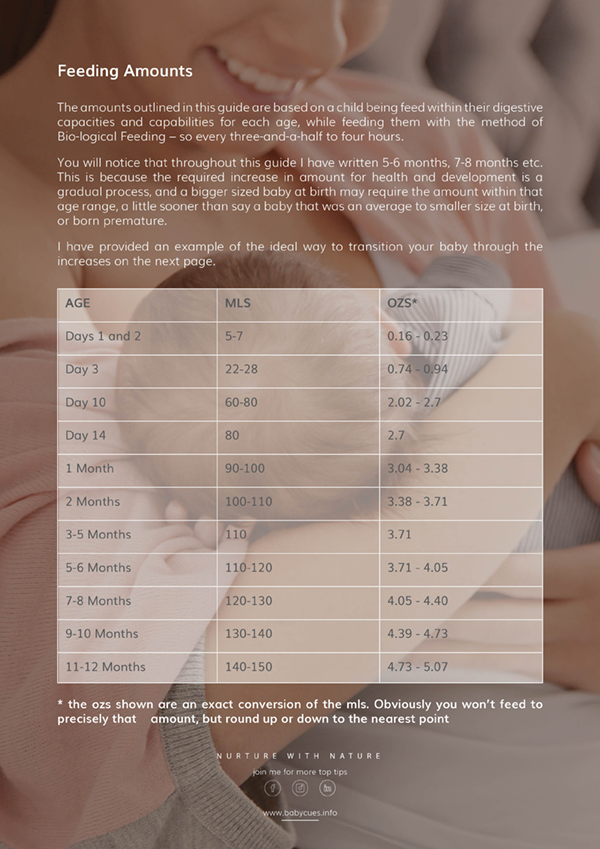
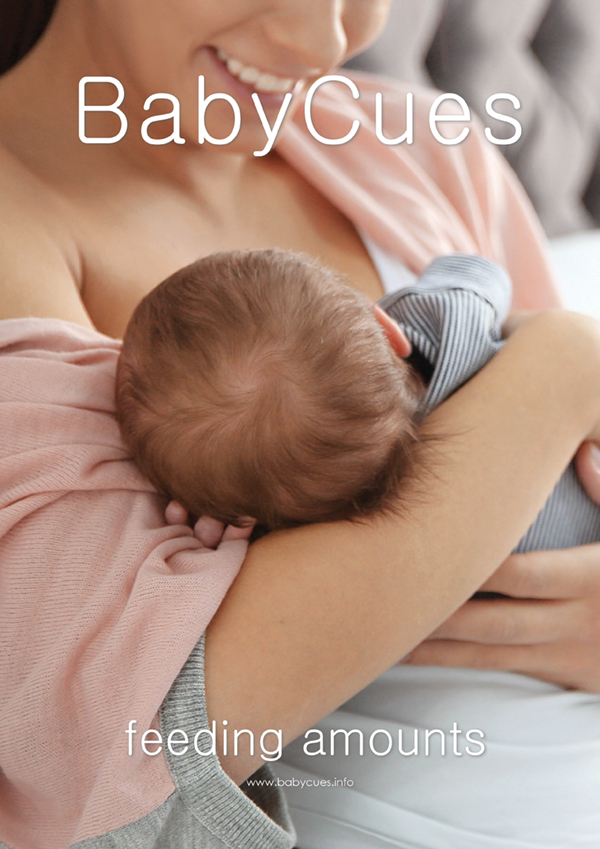
- foster digestive health
- feed to natural capacities
- Reduce Digestive Overload Symptoms


nurture naturally
- foster digestive health
- feed to natural capacities
- Reduce Digestive Overload Symptoms
Recently I was sent an atrocious photo of a baby, around maybe 4-5 weeks old, with such a distended stomach from too much food and gas that the skin was showing the darkness of bruising around the ribs. This baby was long and slender everywhere else, but his stomach was like a balloon about to explode. Excitedly, and understandably as this is what parents are societally taught, the mum was letting people know about her daughter’s weight gain of 445 grams in a week, and what a wonderful thing it was. When I saw the photo, a flood of pure sorrow ran through me for that baby and the parents while a huge need to talk to the mother overwhelmed me, followed by an immense frustration at the health professionals that told this mother that this is great! And horrendously for our young, this kind of scenario is being advocated by health professionals a lot!!
In summary
To define whether your baby is gaining weight to fast and you are perhaps overfeeding them, please do be guided by the amounts mentioned: 20-25 grams a day from newborn to 6 months, and then 50-80 grams a week from 6 months to a year.
If you are concerned about your baby’s weight gain, whether this is too little or too much, ask your doctor for guidance and/or feel free to contact me for a ‘Let’s Chat Consultation’.



